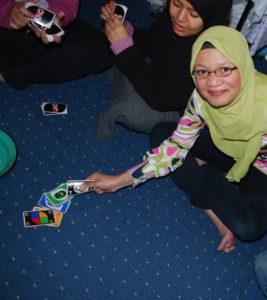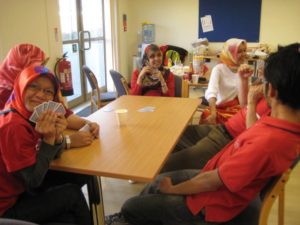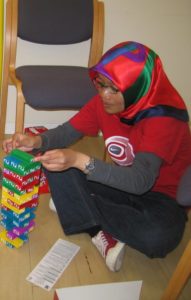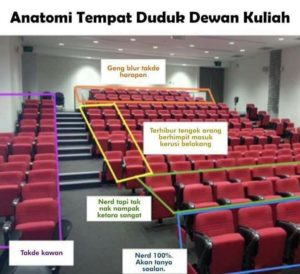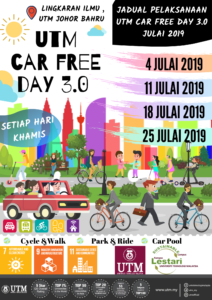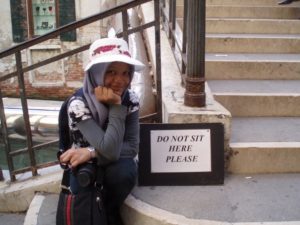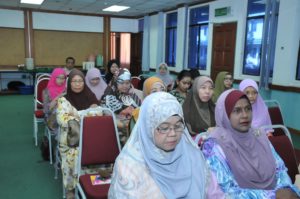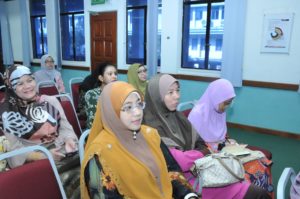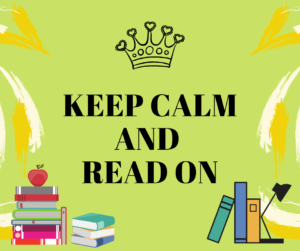I am not a big fan of UNO. But it changes when I went to Durham. I have a group of UNO players. Some are really hard core players who won’t easily accept defeat. They would keep on bugging other players to keep on playing until they win. How time flies!
Category: Random rambling
Seating arrangement
As far as I could remember, there were only a handful of classes which I attended which were conducted at lecture hall like this. I remember I had Clinical Psychology class, Interpersonal Psychology class, Intercultural Communication class and Abnormal Psychology class at lecturer hall similar like this. Why I could remember it quite well? I had my own personal preference of seating arrangement but listed in this picture.
What I remember most is I brought LOTR by Tolkien to Amber Haque’s Abnormal Psychology class. 😀 Well, he likes to tell story and whatsnot. It it not to say that his class is boring, but rather I know how to study for his course even though I didn’t take any notes. 😀 Well, this was before this “Future Ready Educators” wave coming to the academics shore. Now, it is different. Indeed.
MUET oh MUET: Academic Camping 2019
Ita called me few days ago asking my availability to conduct a session for the form 6 students. MUET. Yup. Like last year, I conducted the session twice because they had the camp twice a year. So, I still continue my “service” even after my Latihan Ikhtisas. Well, I enjoy doing it. Some said that I should register the program with CCIN and whatsnot. What a headache just to think about it though!
Well, I need to prepare some materials for the camp. Well, I can easily recycle last year’s materials but I feel that I need to edit some of the things. Ita requested that I do reading activity with them because she has not done it yet. Reading! It is quite tedious to prepare the materials for reading. Why? I need to find examples of reading comprehension that I can use for the activity. I need to craft questions and whatsnot. The ones that I have from last year are just enough for one 2 hours session. Ita requested that I do something a little bit more extensive. Well, I am cracking my head now to add more elements to make it “extensive”. I find this article from The Guardian. I need to edit some of the texts to shorten it a bit. 😀
Car Free Day UTM July: Reply to various comments and questions
SOALJAWAB PERLAKSANAAN CAR-FREE DAY (CFD) KE ARAH PELAN KAMPUS LESTARI
*Apa itu CFD?*
Program yang dimulakan pada 2016 diteruskan dengan kesinambungan dan fasa mengenai kesedaran awam dan warga kampus mengenai budaya pengurangan kenderaan persendirian di dalam kampus yg menjangkau sehingga 20,000 sehari mengikut waktu puncak. Selain itu, program ini adalah acuan UTM dgn mengambilkira kepentingan penyuraian aliran trafik yg padat pd waktu puncak, pergerakan kenderaan staf dalam kampus, zon pelajar aktif berkenderaan dan seterusnya pengetahuan secara teknikal mengenai meminimakan impak karbon dalam kampus
*Mengapa Hanya Zon Tertentu Dipilih?*
Sejak 2016, UTM telah mengenalpasti zon laluan, trafik, kesesakan dan intensiti waktu puncak. Bermula dgn itu, pihak UTM merasakan perlu ada kesedaran di pelbagai peringkat terutamanya di zon utama, pentadbiran, akademik dan kediaman. Justeru, diwujudkan laluan zon yg mempunyai isu dan kaedah mengurangkan kenderaan persendirian. Komitmen utama ialah membentuk minda positif dan menerima pembaharuan mengikut fasa. Sementara itu, pihak UTM sedang melaksanakan kerangka baru terutama melibatkan polisi, perlaksanaan dan penguatkuasaan yg akan membantu peningkatan keperluan fasiliti spt lorong berbasikal, pejalan kaki, susur berbumbung dsbg. Selepas 3 siri CFD dilaksanakan, pihak UTM mendapati adalah wajar zon laluan diluaskan sehingga satu Universiti boleh dilaksanakan. Konsep penutupan sepenuhnya laluan ke UTM akan dimulakan pada bulan Ogos dengan membuat 2 atau 3 simulasi sebelum dapatan data teknikal dibentangkan kepada umum. Insyallah, UTM menuju ke arah “Zon Kampus Tanpa Kenderaan” menjelang 2022. Menerusi agenda ini, UTM akan memperbaiki segala kelemahan dan kekurangan fasiliti. Insyallah
*Mengapa CFD masih belum dapat diterima di peringkat UTM?*
Pihak UTM mempunyai misi dan visi yang jelas mengenai usaha dan elemen mendidik minda lestari. Pihak UTMCS telah mengadakan perbincangan awal dgn bbrp PTJ dan individu yg memerlukan perlu ada lonjakan minda kelas pertama berdasarkan pakej Karbon Rendah Karbon dan komitmen Universiti sejak tahun 2015 lagi. Pakej kelestarian yang dibentuk pada spt ini adalah utk menyakinkan warga kampus bahawa iltizam UTM bukan hanya di atas kertas. UTM perlu mendepani cabaran baru dan menambahbaik keperluan semasa selaras dgn komitmen Universiti yg giat mempelopori SDGs bagi jaminan masa depan. CFD hanyalah satu daripada beribu program yg diatur bagi tujuan tersebut.
*Benarkah CFD ini tidak jelas halatuju dan misi/visinya?*
Setiap perancangan awal yg dibuat telah diteliti kesan dan impaknya. Manusia merancang dan perancangan daripadaNya adalah lebih baik. Bagaimanapun, penutupan laluan tidak 100 menyusahkan, malah utk rekod UTMCS telah cuba membuat pelbagai rujuk-silang, komen dan sedikit data yang membantu urusan berkaitan CFD. Pengecualian juga diberikan mengikut hebahan yang dinyatakan termasuk bagi yg mengandung dan petugas.
*Masa CFD pada kali ini?*
Masa beroperasi semua sekatan CFD adalah bermula jam 8.00 pagi sehingga 3.30 petang sahaja. Laluan trafik akan dibuka sepenuhnya selepas itu terutama utk lingkaran ilmu
-Sekian, Terima Kasih-
Are we rebellious by nature?
I am in a midst of crafting assignments for my next semester class. Yup. I had enough of people taking my class assignment instructions and use them without proper credit, so I decide to change mine. Well, this is in line with the curriculum review.
As I was googling stuff over the internet, I have problems to decide on a theme. Yup. My assignments have themes, y’all. I will teach human development class next semester. I have some ideas in my mind but I haven’t decided which will be one that I would use in my class. While browsing for articles (yup, my class activity would involve reading articles. If it is not journal articles, it would be something similar. Perhaps a layman-version-research-based articles such as what they publish in Psychology Today), I came across this article about rebellious angst among teens.
Note: When I took this picture in Venice, I was not a teenager but in my early 30s. But looking at the signage post of “Do not sit here please” prompted me to sit beside the signage and strike a pose. 😀 Perhaps I still have the teenage angst in me somewhere that would be displayed when the right time comes.
Future Ready Educators: Start from small
After the talk, we were divided into several groups. For each group, there was a leader. I was in Assoc Prof Dr Jamaluddin Harun’s group.
He briefed us about the aims and tasks that we should do. One of the aims is to have supportive community of practitioners of a NALI. For example, if I use case based learning in my class, I would be grouped in a group of practitioners who also use case based learning in their classes. So, we can exchange ideas and information about our own practices. From faculty level, we can later on have university level community of practitioners of case based learning. But, rather than having a leader or whatsnot, it is more about how the community helps each to enhance their teaching technique.
So, what should we do? First thing first, reflect back on our own teaching practice. What have we done so far? How well we document our practice as evidence i.e. through e-content? How often we share our practice with others i.e. formal like conference or informal like talk with others over lunch?
Second, think about the areas that we need to improve on our teaching practice based on the evidence that we have (i.e. students’ narrative feedback etc.). Be open-minded about this. Don’t rely too much on the eppp rank.
Third, plan and implement the things that we want to improve. This is when the community of practitioners would be needed to provide additional feedback other than our students to ensure that whatever we do are in line with NALI. Simple?
How on earth am I going to do this? I really had enough of colleagues who like to plagiarise my work (technically take the whole thing and claim it as their own). I don’t mind to share provided you do something similar yet you use different instruction in your class.
P.S: Someone asked during the session, how would it benefit him by being a member in one of the community in terms of ELPPT? I roll my eyes. I rest my case.
Future Ready Educators Talk By Assoc Prof Dr Naziha Ahmad Azli
I attended the talk about Future Ready Educators (FREE) by the Director of Curriculum Development and Innovation Unit (CIDU) at D05 yesterday (8 July 2019, Monday).
So, what is Future Ready Educators actually? Simplified version (i.e. my version): It is educators who are equipped with knowledge and skills (whatever necessary) in teaching future generations including the millennials by using technology in their teaching and learning process. Well, everybody must think that “I use powerpoint i.e. technology, so I am already future ready educator“. Err, it is more than using such tools in our class. It is about how we engage students in the learning process with the use of technology.
So, for example, rather than lecturing various theories of motivation, what I did last semester was, I gave each student a copy of material which contains information about theories of motivation. Then later on, I divided them into several groups. Within one group, there would be five members/students. I gave them a written instruction that they can refer to if they do not understand what they should in their discussion. Ok, now, where is the technology that I had used here? Wait. Please continue reading.
It looks like a normal discussion. Well, it is not because I used “jig saw technique”. I gave them specific instruction to follow.
Cooperative learning [Jigsaw activity]
Instructions:
- [Individual task. 10 minutes]: Each member has been assigned with a sub-topic. Each member has to read on his/her own for 10 minutes of the given sub-topic from a textbook.
- While reading the given sub-topic, write down anything that is confusing that you want to ask to other expert in your expert group.
- Write your own notes to summarise your understanding from your reading.
- [Expert group. 25 minutes]: After 15 minutes, those who are assigned with the same sub-topic (for example, behavioural theory Group 1-11 should gather together and discuss the sub-topic based on their individual reading. Since we have 11 groups, so there will be two groups for each topic. Meaning, representative of each topic from Group 1 to 5 will be in Group A and representative of Group 6 to 11 will be in Group B).
- Take turns to explain what you understand based on your reading (3 minutes per person).
- Take turns to record important points presented by each member.
- Ask any question that you might have or anything that need to be clarified based on your individual reading in this group.
- Please help each other to understand by clarifying or giving examples.
- You should spend 25 minutes on expert discussion [3 minutes x 5 or 6 students = 15 or 18 minutes. Additional 7 minutes for recording/refining your notes].
- [Original group. 30 minutes]: After 25 minutes of discussion in expert group, each team member with different sub-topics gather as a group [refer to your group assigned to you].
- Take turns to present each sub-topic to your group member (5 minutes x 5 sub-topics = 25 minutes).
- Ask any question that you might have or anything that need to be clarified during discussion.
- Please help each other to understand by clarifying or giving examples.
- Take turns to record important points presented by each member.
- Recorder(s) and leader should record important points presented by each member.
- You should spend 30 minutes on this session [5 minutes x 5 students = 25 minutes. Additional 5 minutes for recording/refining your notes]
- [Individual task. Short quiz of 10 questions using Quizziz. 15 minutes]: Answer all questions.
So, where is the technology here? After I ended the discussion, to make sure that they understand from peer discussion i.e. jig saw activity, I gave them an online quiz. Based on the online quiz, I would know if some of them are still struggling to understand certain things. Previously, I could just ask them orally about what they have understood or give them paper-and-pencil test. But, to allow them to digest information that they have learned, I gave them ample time to revise on their own before answering my quiz. When I looked at the quiz a few days later on, I noticed that majority of them could answer the quiz well. Meaning, out of 15 questions, majority could get 12 or 13/15. Not bad. So, when I met them on the following week, I just quickly rectified some misconceptions (based on their answers, I assumed that it is due to misconceptions). There you go.
Some of you might say, why did I provide the material for the jig saw activity rather than asking the students to find on their own? Well, in this case, I want to make sure that everybody will use the same material. If I ask them to find the materials themselves, they might find different materials. Well, isn’t it better in that sense, right? Well, not necessarily. It depends. In my case, I notice that NONE of my students had a textbook. So, the material that I provided is from a textbook. My stance is, at least, they read extensively one whole chapter based on the material that I provided (i.e. I photostated ONE whole chapter for them). 😀
Here is an example of cooperative learning i.e. jig saw activity which I added with an online quiz (technology). Am I a future ready educator? Well, I can’t claim myself as such if I only use active learning in my class, right? I need to diversify my teaching techniques and activities that I give to my students. I have a long way to go.
Note: En Fuad Ahmad took some pictures. I looked so intense in this picture. Don’t ask me what I scribbled in my small notebook. It is not something important. 😀
Publish or perish or…..
I have my own stand on this issue. But for me, it is all boiled down to being true to oneself. I know that it is becoming a rare practice to be the slow professor in this fast pace academic rat race, yet it depends on one’s intention. Publication does not necessarily mean journal articles. It could be in a different form like module and such.
“Do what you know best and do it the best you can”. That’s what I believe in. It is kind of ironic to succumb into the culture of “stealing” for the sake of balancing your survival based on publish-or-perish principle.
Why values are important in your life?
I think about this (what matter most to me?) over the weekend. Teaching the 6 struggling students give me a sense of purpose. Seeing them struggling and yet feel enlightened after discussion/brainstorm/activity, it motives me to help them unconditionally (I am not paid to teach them, nor I gain monetary thingy from it).
I find an article about how values important in our life. The first three sentences resonate with what I was thinking, “Values are what bring distinction to your life. You don’t find them, you choose them. And when you do, you’re on the path to fulfillment”
How to change negative emotion to positive?
It has been more than 3 years since the incident with a student that I called as minah-t-test-tak-tahu. At times, some of my colleagues notice that I still cannot let the incident gets off my mind. Well, I can forgive, but never forget. This is my art of letting go.
Learning Adjustment Psychology with Amber Hague taught me to improvise things when “things” happen in life. Even though I create a case based on the incident which later on I use in my Personality Psychology class on regular basis (her case is the “must” discussed case) as a mean of healing, some colleagues consider it as an unhealthy endeavor.
Well, I read somewhere that to change negative emotion to positive is the best way of healing. HOW? Channeling negative thoughts and act into something productive and positive. In my case, rather than concocting revenge on the student and her family (this is a normal reaction but it is negative thought), I choose to do something more productive such as crafting cases for discussion in class and such (this is positive and productive act). I am struggling to find research findings on this approach for a while. After searching for a while, finally, I find an article about it from Psychology Today.
